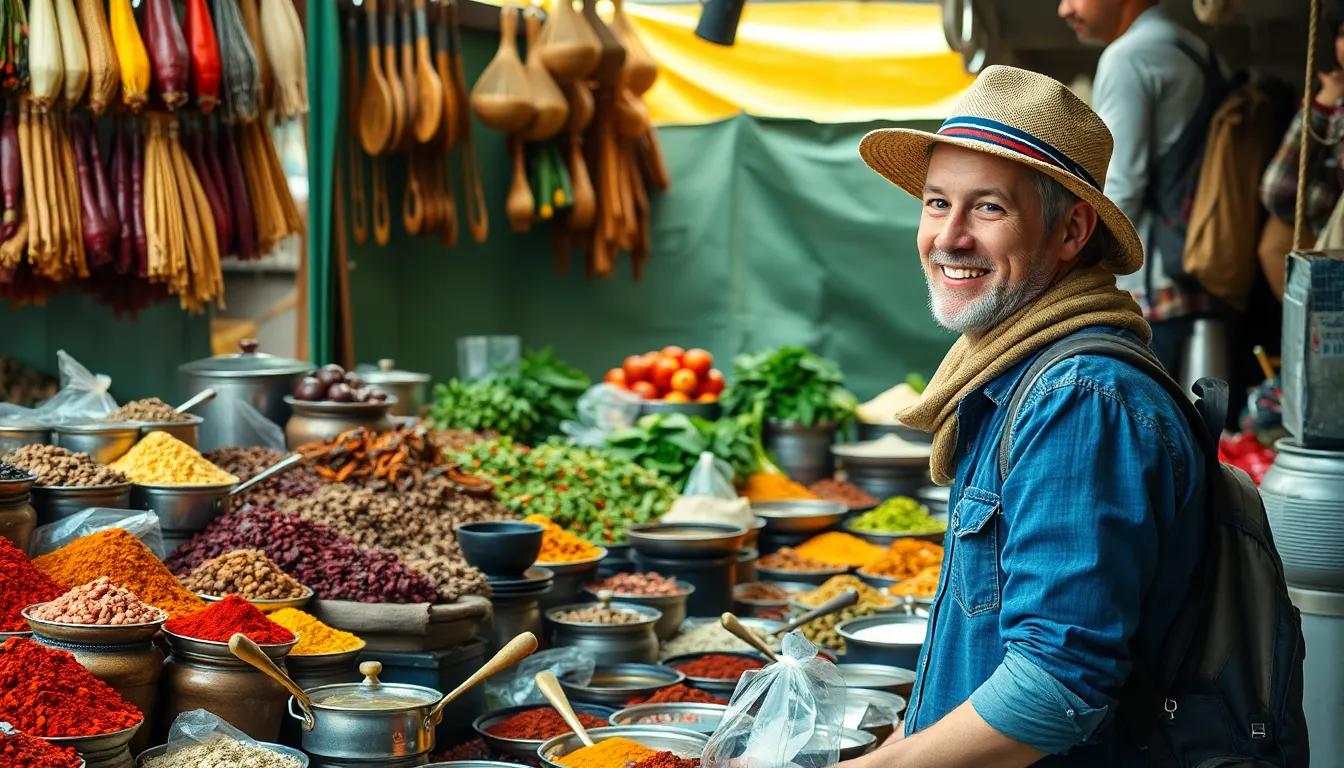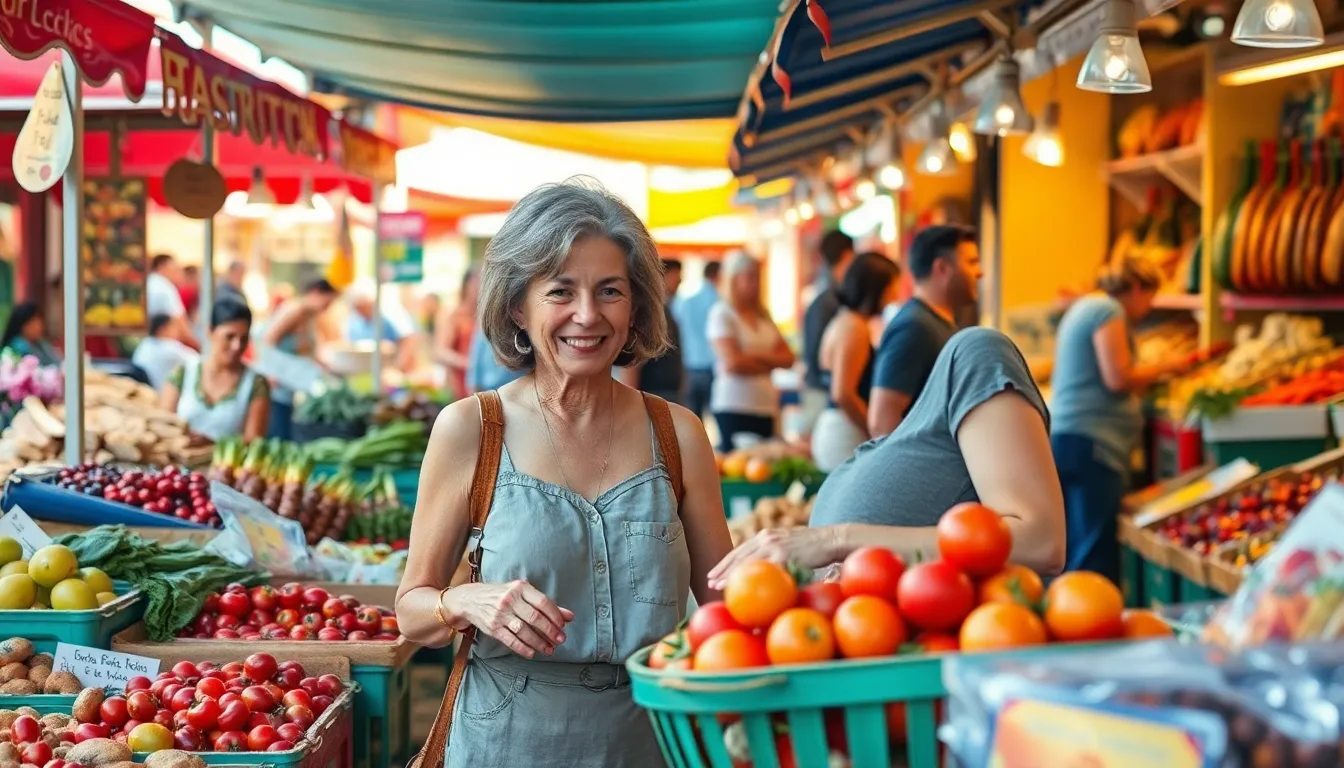Exploring regional cuisine tours opens a delicious window into the heart of a culture. Each dish tells a story, reflecting the unique ingredients, traditions, and history of its origin. From the spicy street food of Bangkok to the rich pasta dishes of Italy, these culinary adventures offer food lovers an unforgettable experience.
Travelers can savor the flavors of local markets, learn from passionate chefs, and even participate in hands-on cooking classes. These tours not only tantalize the taste buds but also foster a deeper appreciation for the diverse culinary landscape around the world. Whether one’s a seasoned foodie or a curious novice, regional cuisine tours promise to delight and inspire.
Table of Contents
ToggleOverview of Regional Cuisine Tours
Regional cuisine tours provide an immersive experience that showcases the unique culinary practices of various locations. Each tour highlights distinctive dishes that embody local culture, ingredients, and history. Travelers engage with the community through local markets, where they discover fresh produce and traditional cooking methods.
Participants learn directly from chefs and skilled home cooks, gaining insights into preparation techniques and flavor profiles. Cooking classes often form a crucial part of the itinerary, enabling participants to create signature dishes themselves. This hands-on approach fosters a deeper understanding of regional ingredients and their applications.
Various types of regional cuisine tours exist, catering to different preferences. Food enthusiasts may prefer gourmet tours focusing on high-end restaurants, while others enjoy street food experiences that reveal authentic, everyday fare. Additionally, tours may emphasize sustainable practices, highlighting farm-to-table experiences or local artisans.
Incorporating historical context, these tours connect culinary traditions to cultural narratives, enhancing appreciation for each dish. As travelers savor the flavors and aromas, they’re encouraged to reflect on the stories behind what they eat. Regional cuisine tours create memorable experiences, ensuring that each bite serves as a gateway to understanding the rich tapestry of global culinary diversity.
Benefits of Regional Cuisine Tours

Regional cuisine tours offer unique benefits, combining the joy of food with cultural exploration. Travelers gain a deeper appreciation for local traditions and flavors, enriching their culinary journey.
Cultural Experience
Cultural experiences form a core component of regional cuisine tours. Participants immerse themselves in local traditions, interacting with communities and understanding their customs. Engaging with artisans and local vendors enhances appreciation for the ingredients and preparation methods. Visitors discover the stories behind iconic dishes, connecting meals to historical narratives and cultural practices. These interactions foster a sense of respect for diverse culinary landscapes, turning every meal into a shared experience.
Culinary Education
Culinary education plays an essential role in regional cuisine tours. Participants learn directly from skilled chefs and local cooks, gaining hands-on cooking skills and techniques. Workshops may cover knife skills, ingredient selection, and traditional cooking methods. Travelers explore local markets, sourcing fresh ingredients while understanding their significance and uses in local cuisine. This educational approach not only improves cooking abilities but also encourages participants to embrace new flavors and recipes back home. Such experiences inspire culinary creativity and foster lifelong learning in the kitchen.
Popular Destinations for Regional Cuisine Tours
Regional cuisine tours offer immersive experiences across various continents, each showcasing unique culinary traditions. Popular destinations include Europe, Asia, and the Americas, where travelers can engage with local flavors and cultural practices.
Europe
Europe boasts a rich diversity of regional cuisines, making it a top destination for food lovers.
- Italy: Renowned for its regional specialties, Italy invites travelers to savor dishes like pizza in Naples, risotto in Milan, and fresh pasta in Bologna. Each region offers unique ingredients and cooking techniques.
- France: France presents a culinary landscape where participants can explore classic dishes such as coq au vin in Burgundy and bouillabaisse in Marseille. Local markets provide fresh produce and artisanal products, enhancing the experience.
- Spain: Spain’s vibrant tapas culture allows travelers to taste small plates in cities like Barcelona and Seville. Traditional markets and cooking classes elevate appreciation for Spanish flavors.
Asia
Asia’s diverse culinary traditions capture the essence of its rich cultures.
- Thailand: Thailand’s street food scene showcases dishes like pad Thai and green curry. Culinary tours often include visits to local markets and hands-on cooking classes, providing authentic insights into Thai cuisine.
- Japan: Japan features a variety of regional dishes, from sushi in Tokyo to ramen in Fukuoka. Participants immerse themselves in the culture by learning from local chefs and experiencing traditional tea ceremonies.
- India: India offers an array of flavors through regional curries and street food. Culinary tours often explore local markets and invite participants to learn spices’ significance in Indian cooking.
Americas
The Americas provide a blend of indigenous and contemporary cuisines worth exploring.
- Mexico: Mexico’s cuisine highlights vibrant flavors and ingredients, with opportunities to enjoy mole from Oaxaca and tacos from street vendors. Culinary tours often introduce participants to cooking classes led by local chefs.
- Peru: Peru’s culinary scene, featuring dishes like ceviche and lomo saltado, showcases its diverse ingredients. Participants can explore markets and engage with local cooks to learn about traditional preparation techniques.
- United States: The United States is home to various regional cuisines, from Southern barbecue to New England clam chowder. Tours focus on local specialties and sustainable practices, enhancing participants’ understanding of American culinary traditions.
Tips for Planning a Regional Cuisine Tour
Planning a regional cuisine tour involves careful consideration of various factors to maximize the culinary experience. Focus on selecting the right destination and timing for the visit to ensure an enriching journey.
Choosing the Right Destination
Choosing the right destination requires understanding individual culinary interests and preferences. Travelers should consider the following:
- Culinary Specialties: Research regional dishes and ingredients that pique interest. Countries like Italy, Thailand, and Mexico offer unique flavors and preparations.
- Cultural Activities: Identify destinations that provide immersive cultural experiences alongside culinary exploration. For example, Japan combines traditional cooking with unique cultural practices.
- Local Markets: Visit areas known for vibrant local markets, ensuring access to fresh ingredients and opportunities to engage with local vendors.
- Tour Variety: Evaluate the types of tours available, including gourmet tastings, street food adventures, and cooking classes, to align with personal preferences.
- Accessibility: Consider transportation options and local amenities to facilitate easy travel between culinary sites and accommodations.
Timing Your Visit
- Seasonality of Ingredients: Research seasonal produce and traditional dishes linked to specific times of year. For instance, summer may showcase fresh fruits in Mediterranean countries.
- Local Festivals: Plan visits during food festivals or cultural events to enjoy unique culinary offerings and engage with local traditions. Events like the La Tomatina in Spain or the Chinese New Year food celebrations provide memorable experiences.
- Weather Conditions: Consider climate variations that may affect local food availability and comfort during outdoor culinary activities. For example, visiting Southeast Asia during the cooler months enhances the experience.
- Tour Scheduling: Book tours in advance, especially during peak tourist seasons, to secure spots and access exclusive experiences with local chefs and artisans.
- Travel Restrictions: Stay informed about local travel guidelines and restrictions that may affect timing, particularly in light of changes due to health concerns or regulations.
Regional cuisine tours offer an unparalleled opportunity to dive into the heart of a culture through its food. Travelers not only savor unique flavors but also connect with local communities and traditions. The immersive experiences gained from engaging with chefs and exploring markets create lasting memories and deepen culinary appreciation.
With a variety of tours available, there’s something for everyone, whether it’s gourmet dining or street food adventures. These journeys foster respect for diverse culinary landscapes while promoting sustainable practices. By embracing the stories behind each dish, travelers enrich their understanding of global gastronomy, making every meal a celebration of culture and history.





